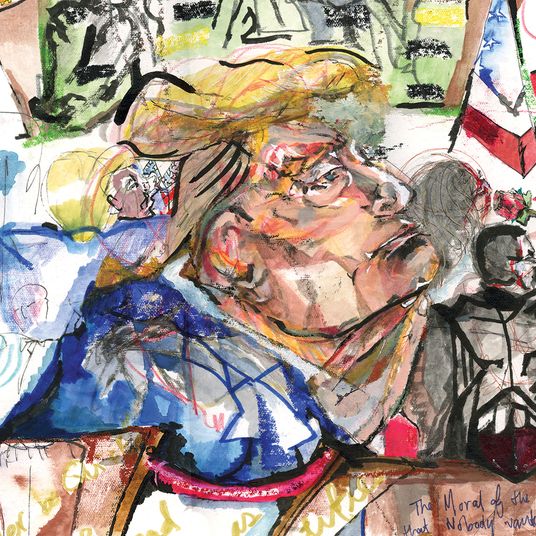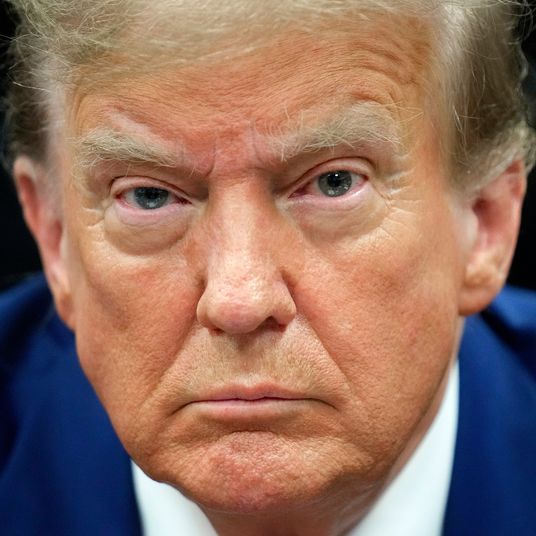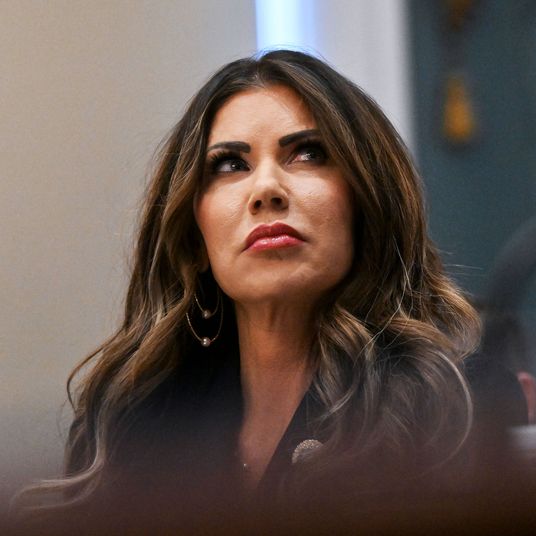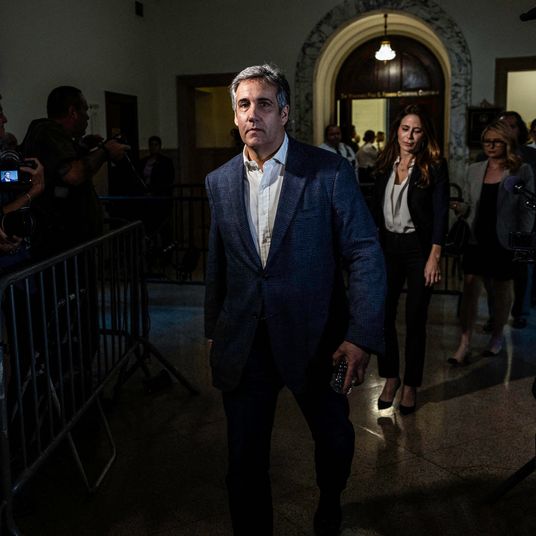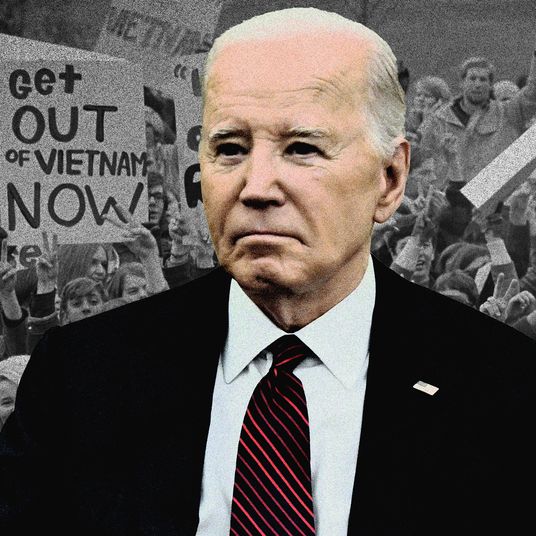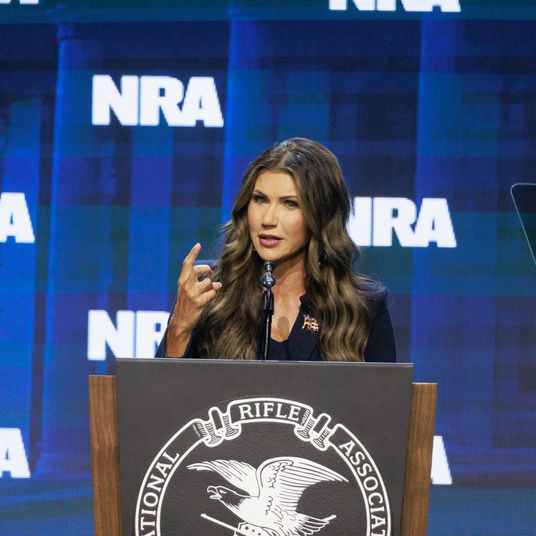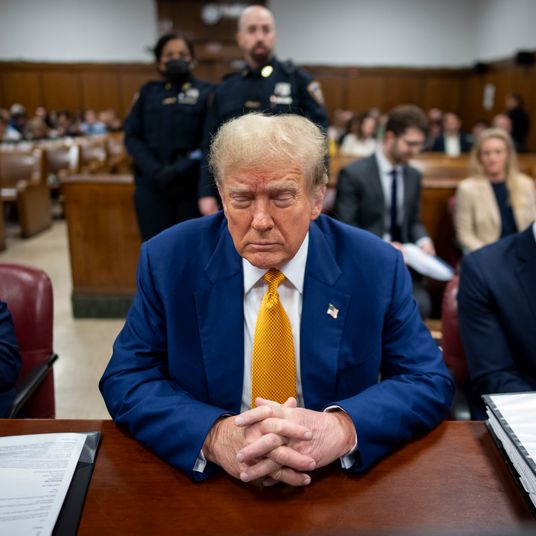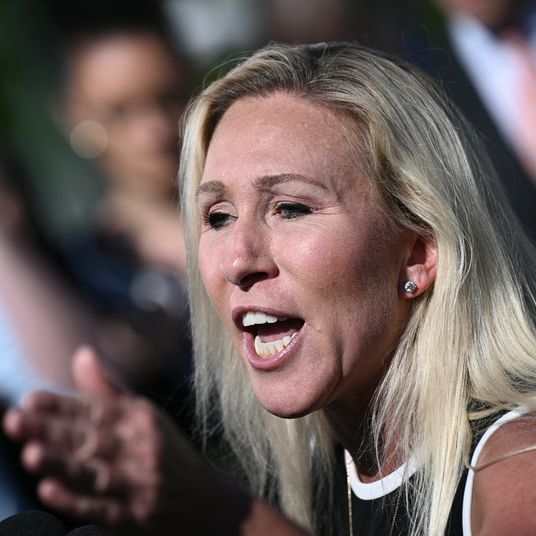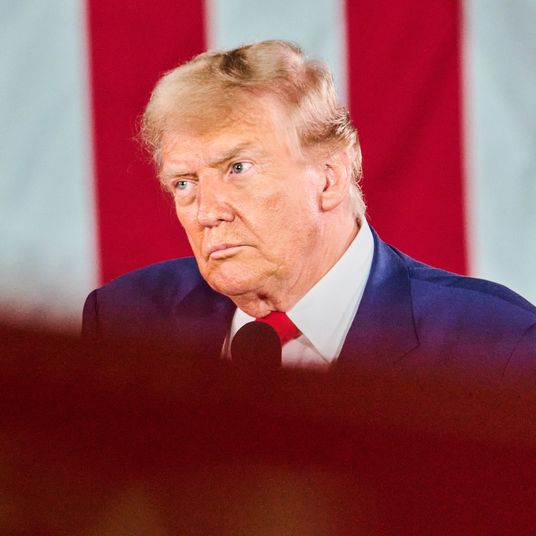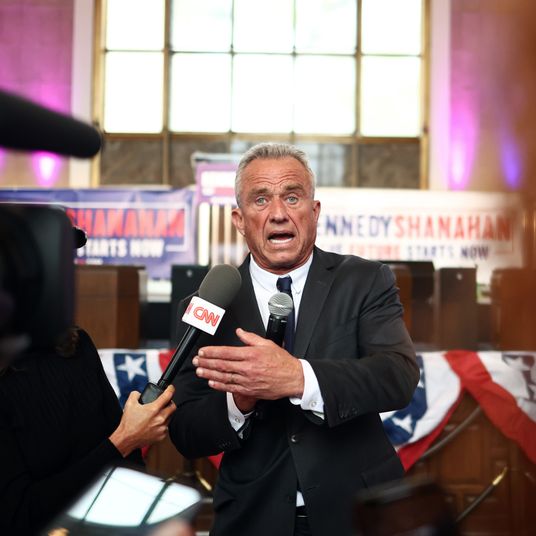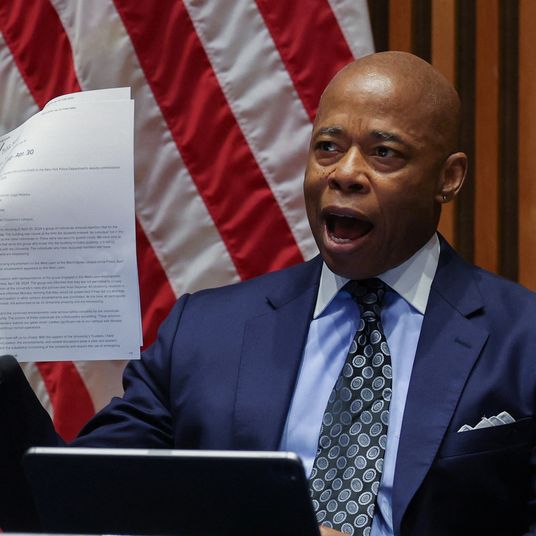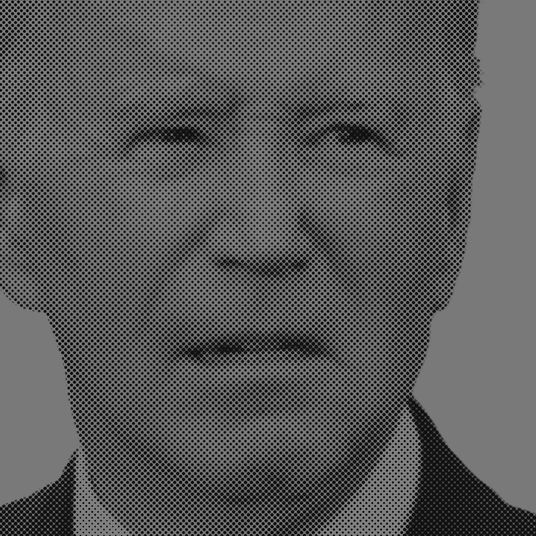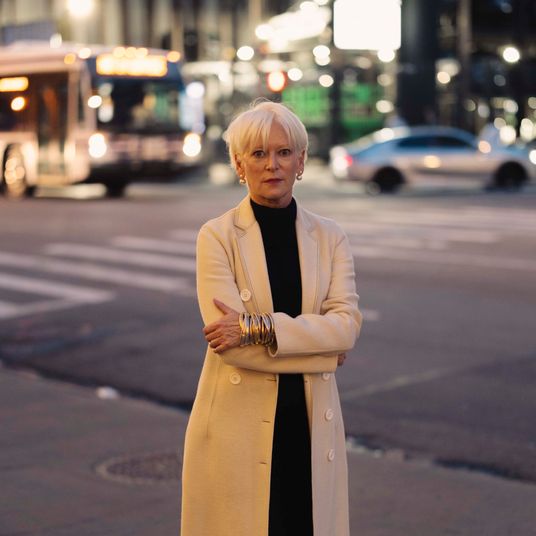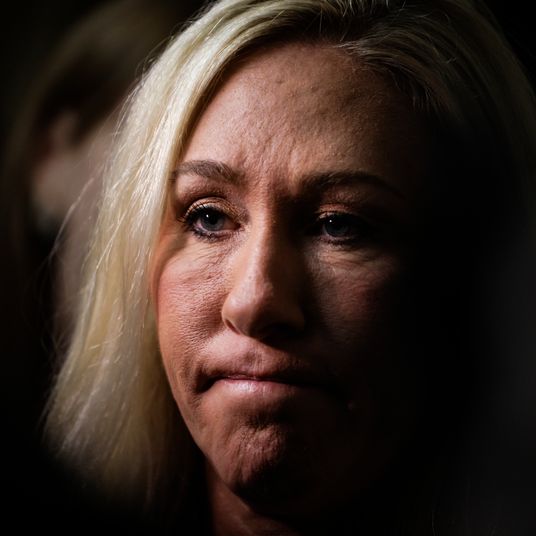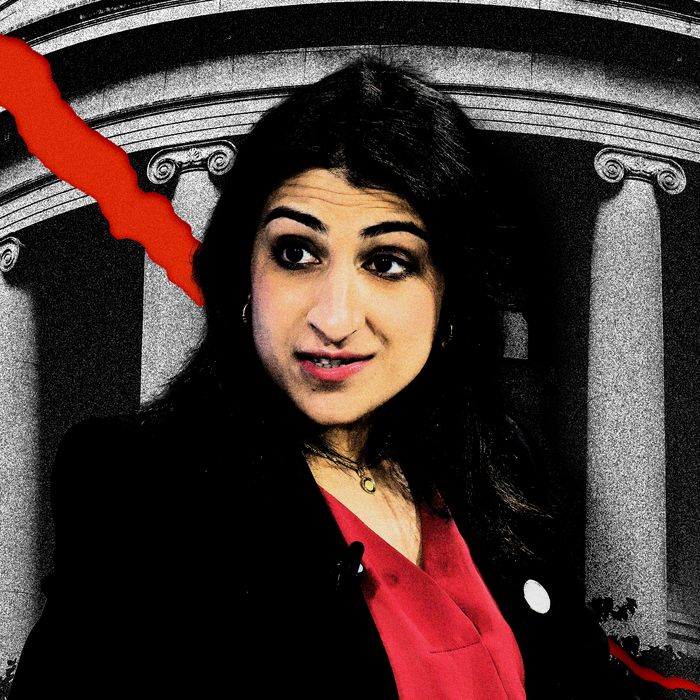
There was palpable excitement on the left when President Biden appointed Lina Khan, just 32 at the time, to lead the Federal Trade Commission in 2021. She had risen to prominence after writing a 2017 law-review note arguing that Amazon was an illegal monopoly and became a celebrity in the burgeoning progressive antitrust-reform movement, which wants to radically change federal antitrust policy. With the appointment of Khan and others in the Biden administration, the movement seemed to assume all of the key levers of power in Washington that it would need to implement its agenda.
Things have not gone as planned for the movement or the once-rising star, who has suffered a series of conspicuous setbacks at the helm of the FTC this year. A proposed rule banning noncompete agreements has drawn skepticism from well-regarded observers. A legally dubious effort to rewrite the agency’s merger-review policy has drawn widespread criticism, including from former Obama administration officials and former chief economists at the agency. Worst of all, two high-profile lawsuits against tech giants — one against Meta, the other against Microsoft — flopped in the courts.
Khan has become an object of over-the-top derision on the right, but the discontent with her tenure inside the FTC is broader and far less ideologically motivated than her defenders would have us believe — something that became clearer to me after a series of interviews with a number of officials who left the agency after Khan took over and a group of agency alumni who are now in academia. I surveyed them to try to get a better sense of what is actually happening within the agency and how Khan might conceivably improve the situation. The returns were decidedly mixed with concerns about Khan’s leadership ranging from the personal to the political.
To my modest surprise, the most common area of concern was Khan’s temperament and management style — a subject that has generally eluded serious media scrutiny but that has vexed career officials since her arrival. In their telling, Khan’s failings in this area explain a lot about what has happened at the FTC this year, including why the agency has been bringing cases with shaky legal underpinnings, why it’s losing those cases, why experienced officials have been leaving, and why the rest of us should care. (The FTC declined a request to interview Khan.)
The stakes extend far beyond Khan’s professional ambitions or even the FTC’s current portfolio of investigations and active litigation. Khan’s failure could ultimately prove fatal to a once-in-a-generation movement to dramatically transform government antitrust policy, for better or worse, so that government regulators and the courts block far more mergers and acquisitions throughout the economy. She is not alone in the effort — she has a political and ideological ally at the helm of the Justice Department’s Antitrust Division — but things are going just as suboptimally, if not demonstrably worse, over at the DOJ.
More to the point, Khan had been positioned as a defining intellectual and political leader in the movement. If her tenure at the head of the FTC turns out to be a failure, it could deal an existential blow to the movement that she has devoted her career to.
When Khan stepped into the role, she had already become the face of the new antitrust school. (It is sometimes called the “New Brandeis school” or, more derisively, “hipster antitrust.”) Her paper on Amazon had become a bona fide hit, and she went on to a leadership position at the Open Markets Institute and later worked at Columbia Law School. Between positions at those institutions, Khan worked briefly for Rohit Chopra, who was at the time a commissioner at the FTC and is now the head of the Consumer Financial Protection Bureau. She also helped lead a major congressional investigation into monopoly power at Amazon, Apple, Google, and Meta but otherwise had scant experience working in a federal agency. As a result, there were questions from the outset among FTC insiders about whether Khan was up to the task of managing an organization with more than 1,000 employees spread throughout the country.
“The job of chair is a run-for-your-life experience because you are the chief operating officer as well as the head of the institution,” William Kovacic, a Republican who once led the agency himself, told me. “If you’ve had no experience in managing an organization, or in managing much of anything, it’s overwhelming.”
The same people bristled at what they perceived to be fawning and credulous coverage of Khan’s appointment from mainstream-media outlets. Sure, she had an expansive vision of antitrust law and she had the right enemies. (Many people in the media hate the same companies that Khan does because they believe that Meta et al. effectively destroyed journalism.) But it was far from clear whether she had the proper skill set to manage a large agency and a litigation strategy that might actually change the law — something that requires understanding resources, how to deploy them, and how to pick the right cases as the vehicles for your effort.
FTC officials were also quickly taken aback by what they saw as a heavy-handed, outcome-oriented approach on her part. To make matters worse, they worried that Khan did not know enough about the agency’s resources or day-to-day operations. Another former official recalled that “any kind of disagreement, whether on substance or resources, was very much looked down upon.” Khan came off as imperious to some. She “came in with a bunch of answers” and a bunch of targets — big tech companies first and foremost — “but no actual strategy” for how to achieve her objectives within the agency’s legal and resource constraints.
It did not help matters that Khan, Biden, and other administration officials had sharply criticized the agency’s track record in ways that felt personal to many officials at the agency. Khan had been “outspoken in criticizing the agency,” as Politico reported shortly after her appointment, including in congressional testimony in which she claimed that her predecessors had “recommended enforcers err on the side of inaction, on the assumption that monopoly power would be disciplined by the free market.”
To some, the tenor of the criticism recalled the days of Donald Trump. “The career staff as a general statement was totally sidelined and, quite frankly, treated with a huge amount of disrespect and suspicion” by Khan and her allies, as one former official put it to me. Frustrations mounted and people began looking for the exits. “A lot of people left were thinking, Who needs this shit? I can go work at a law firm,” the same person explained.
Indeed, morale at the agency has plummeted, according to survey data and academic researchers, and attrition has been unusually high. “People are burned-out and worn-out,” a former official told me. “The workload is insanely heavy. People feel like this management team does not respect us, does not value what we do.”
The same person offered a particularly sharp appraisal of the situation: “People genuinely dislike her and what she’s done.” They added, “It’s not going to get any better until she leaves.”
Khan’s legal philosophy has also concerned people within the agency. Modern antitrust law uses a “consumer welfare” standard, under which regulators and courts have generally focused on whether a proposed transaction or merger would harm consumers. Khan and her allies in the new antitrust school have advocated an ambitious new approach that antitrust enforcement should also protect “small producers from anticompetitive underpayments, preserve open markets, and disperse economic and political power,” as Khan herself has argued.
The objections to this approach were not strictly ideological in nature. After all, many officials at the agency have worked under administrations of both political parties and understand that political appointees have an essential role to play in setting the agenda of the agency. “Antitrust, like any area of law, is open for anyone to attempt to modify or change it,” Sean Sullivan, who worked as an attorney in the FTC’s Bureau of Competition before moving to academia in 2017, told me.
Skeptics, however, tended to focus on the particular challenges of operationalizing Khan’s philosophy. One former official openly mocked the difficulties of advocating on behalf of Khan’s approach in the courts. “What am I going to do?” the person asked. “Go to court and say, ‘This cement merger threatens democracy’? … The whole approach is so incoherent.” These people worried that Khan’s high-minded objectives were unworkable in practice; that she was merely trying to reverse engineer a crackdown on Meta, Amazon, and other major tech companies that could be justified by gauzy and subjective rhetoric; and that she was not being forthright about her agenda.
Some former FTC officials also pointedly questioned Khan’s case selection and litigation strategy, particularly after the losses this year in the Meta and Microsoft cases.
The case against Meta — which sought to block the company’s acquisition of the virtual-reality start-up Within — was premised on a legitimate concern about how Meta has historically used its deep pockets to acquire start-ups that might threaten the tech behemoth’s position in emerging sectors. The agency’s position echoed the sorts of warnings contained in Khan’s original Amazon paper, which focused heavily on the company’s early and aggressive foray into selling e-books. Nascent-competition cases, however, are hard to win, and in this case, the judge did not accept the FTC’s prognostications, which he at one point described as “impermissibly speculative.” (The suggestion in Khan’s paper that Amazon might pose an existential threat to the book-publishing industry has also not come to pass.)
The case against Microsoft, which sought to block the company’s $75 billion purchase of the video-game company Activision Blizzard, was also legally adventurous. Progressive antitrust thinkers had been agitating for years for more challenges to these sorts of “vertical mergers,” but they have historically proved very difficult to win in the courts when fully litigated, and this one was no exception. One of the FTC’s main contentions was that Microsoft would limit access to Activision’s most popular games, like Call of Duty, but the judge did not buy it. “To the contrary,” she wrote, “the record evidence points to more consumer access to Call of Duty and other Activision content.” (The deal closed, but the FTC has appealed.)
John Kirkwood, a law professor who worked at the FTC for two decades and considers Khan a friend, was not surprised that the agency ultimately lost both cases. She “thought that a case was good if she had intellectual arguments to support the position, which is a reasonable way of doing it,” he posited. “But I think trying to win a case in federal court, with conservative and skeptical judges, takes a little more. The case ought to be not just plausible, reasonable — but strong. And neither of those cases, from what I know about them, were really strong cases.”
Against this backdrop, the lawsuit that the FTC filed in September against Amazon is a curious specimen. On the one hand, the case is considerably narrower than many people hoped (or feared), focusing on the alleged ways in which the tech giant has used its Prime membership program and order-fulfillment operations to impose costs on sellers who want access to the site’s enormous consumer base. At first blush, it would seem to represent the sort of moderation on the FTC’s part that Khan’s critics have wanted to see after this year’s setbacks.
But in other ways, the lawsuit seems to deploy the kind of aggressive and arguably tendentious reasoning that tends to rankle critics of Khan and the antitrust-reform set. In the FTC’s complaint, the agency claims that Amazon monopolizes the “online superstore market” and “the market for online marketplace services,” but there are several other alternative market definitions that the court might adopt instead, and that alone could ultimately doom the FTC’s case.
The FTC also alleged that Amazon’s business practices result in higher prices for consumers — an apparent concession to the reality that the consumer-welfare standard is still alive and well in the courts — but the agency’s proposed theory on this score is counterintuitive. Amazon insists that sellers who use the platform offer customers their lowest-available prices and penalizes those who do not by limiting the prominence of their offerings on the site. This would seem to be a good thing for Amazon shoppers — especially in a time of persistent anxiety about the cost of household goods — but in the FTC’s telling, these are “anti-discounting tactics” that force sellers to raise their prices on other online-shopping sites and platforms. There are economists who support this theory in broad strokes, but it does not appear that any court has ever found a company liable under a theory like this, and there are serious legal and factual questions embedded in the case that will complicate this effort for the FTC.
Suffice to say, this somewhat elaborate theory of consumer harm will be hotly contested by Amazon, particularly since consumers themselves seem to see matters differently. Americans consistently report extremely favorable views of Amazon, and earlier this year, a poll commissioned by Harvard’s Center for American Political Studies found that Amazon is the most favorably rated institution — either public or private — in the country. The company edged out the U.S. military for the top spot and outperformed Google, every major cable-news network, the FBI, the Justice Department, and the Supreme Court. The poll did not solicit respondents’ views on the FTC.
Just two and a half years into Khan’s tenure, there is time for things to improve — or, more ominously, to deteriorate further — particularly if Biden is reelected next year and she stays on.
“They haven’t lost all that many cases,” Kovacic observed, striking a generous tone, and adding, “Morale improves a lot if you start winning.”
Some early unofficial initiatives — like the Biden administration’s effort last year to enlist the FTC in its dubious quest to blame inflation on anticompetitive industries — appear to have died a quiet death. The agency also remains on track for a major trial in its case challenging Meta’s alleged monopoly in the supposed market for “personal social networking services,” but there are fears among some FTC officials that the agency will lose this case, too, which could do further damage to the agency’s long-term credibility and to Khan’s legacy. One skeptical former official told me that they would not be surprised if the case gets dismissed after the end of discovery and before a trial even begins.
As for what lies ahead, the people I spoke with contemplated a range of scenarios, including the status quo — generally believed to be untenable — and a moderating “reset,” as Kirkwood put it to me prior to the filing of the Amazon case. He argued that “it would be extremely helpful if the case selection, at least for a time, were more traditional — more consumer or labor oriented.” Khan’s “reputation is preceding her,” he told me, and she is “appearing before the federal courts with an asterisk.”
A bleaker scenario posited by others is that Khan’s tenure at the agency could end up playing into the hands of a skeptical Supreme Court, whose conservative majority has made clear that it will push back on what it believes — fairly or not — to constitute overreach on the part of the executive branch. Kovacic praised Khan for “energizing a new generation of scholars and students” but noted that “the federal courts seem to be edging in the direction of rethinking the scope of the FTC’s power — its decision-making framework, the very constitutionality of how it operates.”
The concern is hardly misplaced. The past few years have generated several Supreme Court decisions that have curtailed the powers of federal regulators — including the FTC itself — and made them more vulnerable to legal challenges. The justices recently heard oral argument on a legal challenge to the Securities and Exchange Commission’s system of in-house courts that could also make matters worse for the FTC, which has a similar system.
“I don’t know how much the commission is thinking at the moment about the impact of trying to build a more expansive program in the face of this gathering judicial storm,” Kovacic wondered. “Do you realize you could come out of this with a much-diminished agency?” he asked. “And Congress is not coming to the rescue for you. You could come out of this with an agency that is much weaker than the one that you went in with — permanently weaker.”
“I think a lot of the staff at the agency — and a lot of observers, anybody close to the FTC — are asking a good question,” one former official told me. “‘What is her long game in this?’ And is the long game aligned with the interests of the FTC?”
That person pointed to the eventual divergence between Khan’s career path and the long-term fate of the agency that she currently leads. “It’s one thing to be very aggressive now, starting a lot of things and going to court a lot,” the person said. But Khan will eventually move on, and it will fall to the agency’s rank and file to endure any harm to the agency’s power and standing that results on her watch.
“The question is, Where will she be five to ten years from now?”







